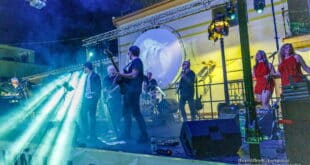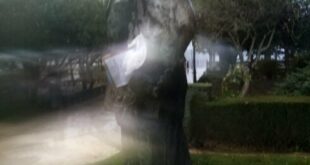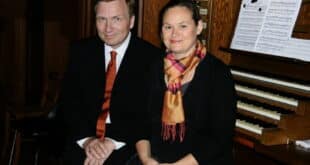As the National Court of Spain prepares for one the most prominent money laundering cases in recent history, attention has been focused on the vast financial empire that Rifaat Al-Assad is alleged to have built.
The infamous uncle of Syrian President Bashar al-Assad – known as the ‘Butcher of Hama’ – and his extensive investments across Spain and Gibraltar are in the crosshairs of the public prosecutor.


The case is centered on the alleged laundering of over €700 million stolen from Syrian state coffers. And he and his family are thought to have pillaged as much as €4 BILLION in total.
Six of Rifaat’s relatives and close associates have been implicated in the case. They are all accused of playing a central role in a web of shell companies and shady transactions, as well as offshore assets.


At the heart of the scandal is not just the astonishing amount of wealth involved, but also the political and ethical questions it raises for European governments – particularly in Gibraltar and Spain.
The court is particularly interested in finding out how such a notorious person was allowed to penetrate so deeply into the real estate and finance systems of the two countries.
Rifaat’s gruesome moniker was earned during the 1982 Hama Massacre, when he led an operation which killed approximately 25,000 people.
Rifaat was Syria’s vice president in 1984, but he fell out of grace after an unsuccessful coup against Hafez Al-Assad.
Soon after his exile, he began to accumulate property and influence abroad. This was especially true in France and Spain.
European investigators believe that he was siphoning billions off the Syrian treasury as Syria plunged into poverty and civil warfare.
French prosecutors in 2020 sentenced him in absentia to four years in prison for money laundering and embezzlement, and seized €90 million in assets.
Even though the case was temporarily sent back to Marbella Court, due to an administrative issue, Spanish authorities have now followed suit.
The Marbella empire
Rifaat Al-Assad has a staggering amount of real estate in Spain.
Prosecutors allege he purchased over 500 properties – including luxury hotels such as the Park Plaza Suites and Plaza Beach Banus in Marbella – and a vast estate in Benahavis.
Many of these acquisitions were made through shell companies registered in Gibraltar, often with the help of disgraced accountancy firm Marrache & Co.


Financially, these purchases were a maze of transactions. High Mountain Estates Ltd. was the company at the centre of the financial maze. It is registered in Bahamas, but it’s owned by Rifaat and the Alhambra Trust.
High Mountain owns 99% of the 29 Gibraltar firms, while Groove Limited is owned by Hiba Development SA. This complex ownership structure, facilitated by the Marrache brothers, Isaac and Benjamin – who were later jailed for fraud – was designed to obscure the Assad family’s involvement.
These offshore channels allowed millions of Euros to flow into Spain in order to buy property and business interests. This was a way of laundering Syrian wealth as well as profits allegedly derived from drug smuggling and extortion.
But in 2017 his Marbella property empire came crashing down when Magistrate Jose de la Mata ordered the confiscation of 503 properties including holiday homes, car parks, luxury apartments and rural estates worth €700 million.
Authorities also seized an estate with a market value of €60 million in Puerto Banus, and froze dozens of bank accounts.
Trial and Evasion
The trial in Spain is targeting eight people, including Rifaat’s sons and family members. However, the patriarch remains conspicuously absent. His lawyers say that the now 87 year old is in Dubai hospitalized and too sick to attend court.
Despite this, prosecutors are pressing for a sentence of eight years and a fine of €2.7 million against Rifaat, along with six years and €2.2 million fines for each of his relatives.
The defense demanded that the case should be sent to Malaga’s provincial court. Earlier this month the proceedings were suspended and sent to Marbella’s court for a judicial assessment. Olive Press’ source said: “I think this may take a whole year.”
Gibraltar is connected to Gibraltar
Gibraltar has been a focal point of the investigation for years, and Rifaat was able to flourish in business there. One of his most controversial actions was the sale of a property in 6-9 Europort – an office building located at the heart of Gibraltar’s Financial District.
In 2018, Rifaat sold his stake in the building for £17.5 million – a figure critics argue was well below market value.
The price was not the only thing that raised eyebrows, but also the buyer: a company with ties to the Isolas, including Gibraltar’s Minister of Financial Services, Albert Isola.
Fiduciary, which is partly owned by Isolas and also handled the sale of Rifaat, was responsible for facilitating the deal.
It led to accusations of conflict of interest, and the opposition parties of Gibraltar demanded full transparency.
Isola denies any wrongdoing.
Independent MP Marlene Hassan Nahon accused the government of ‘burying the case under layers of legal jargon’, and called for a public explanation.
The GSD Party, which is the opposition party, also asked the Attorney General to investigate if any proceeds of the sale were either frozen or given to Assad’s relatives.
Fabian Picardo maintained that the sale was legal despite public pressure. He said Gibraltar courts approved the deal and that the investigators in France were working closely with them.
It’s a matter of conscience
The Rifaat al-Assad case is not just about financial crimes – it’s about moral accountability. How can a man accused in mass murders and corruption create a real estate empire in a democratic Europe?
Why was the alarm not raised earlier, particularly when Interpol warrants or international sanctions were at play?
Further, the controversy could have implications for Gibraltar as well as Spain’s financial reputation. The Assad case is a cautionary story, given the increasing scrutiny of tax havens.
As Anonymous hackers targeted Gibraltar’s government website shortly after the Europort sale was publicised, the symbolism wasn’t lost – this is a story about transparency, ethics, and the thin line between legality and complicity.
Look forward
Spanish prosecutors expect to continue with asset seizure and verdicts by the end of 2025.
Rifaat al Assad’s family’s financial web, however, is quickly unraveling.
The case involves more than just one person. It’s a tale of how money stolen from a country in crisis found a haven among Europe’s sunny enclaves.
The trial’s outcome will not only impact the Assads, but it could also set a new precedent for Europe in terms of how they handle dirty money and offshore finance. It may also be a lesson to other authoritarian regimes who have hidden their loot.
 Costa News Spain Breaking News | English News in Spain.
Costa News Spain Breaking News | English News in Spain.







